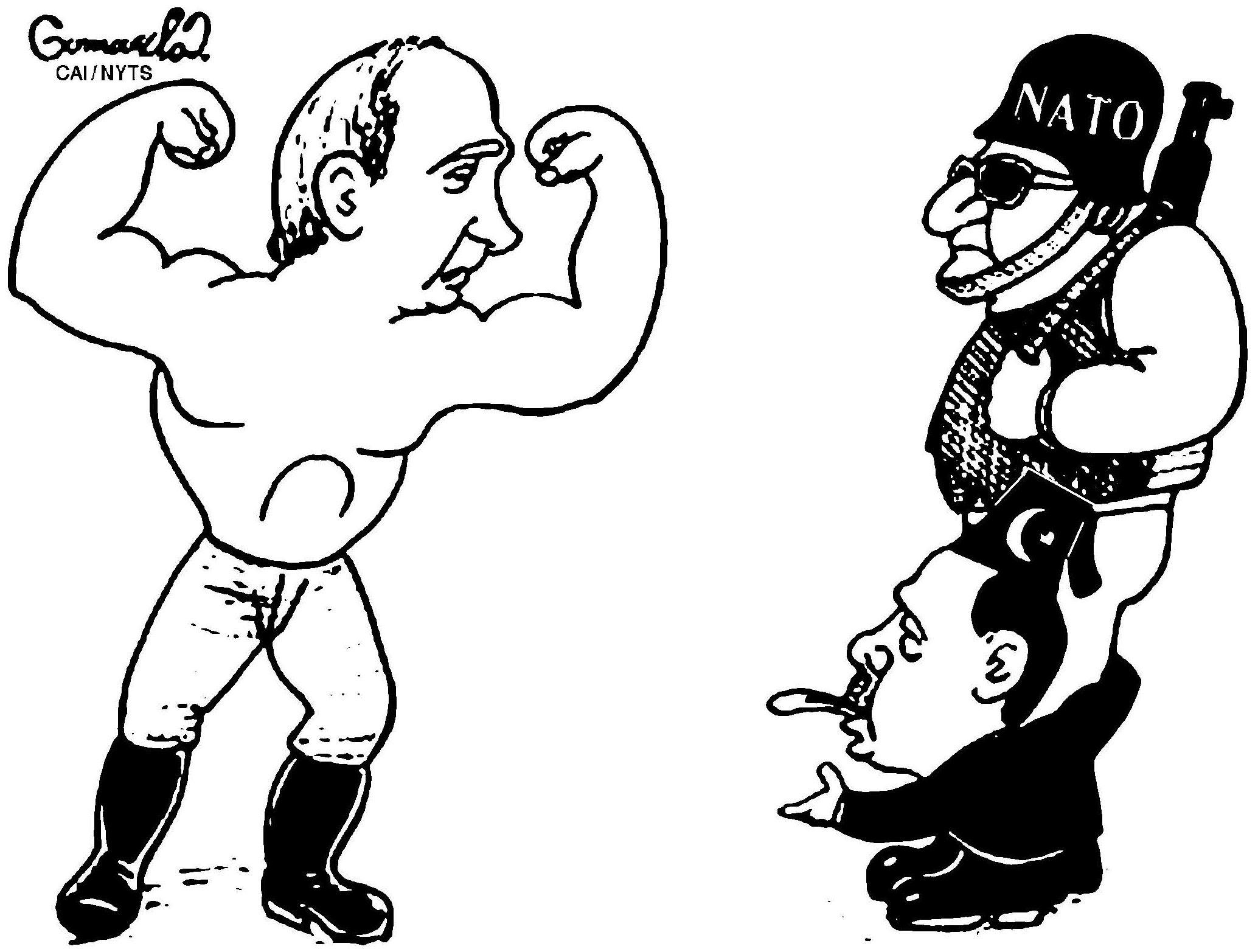The evolution of Russia's National Security Strategy — a document whose latest version was published on Dec. 31 — provides valuable material for the study of the angst, paranoia and befuddlement now gripping the Kremlin.
It's well known that during his third presidential term, Putin has cultivated the image of a Western enemy out to destroy Russia. That this concept has found a way into the strategic document is not surprising or particularly important. The significance of the rewritten national security concept is that, for the first time in the 18 years since President Boris Yeltsin signed off on the first version, the Kremlin officially regrets opening up the country economically and culturally.
Yeltsin signed the first National Security Concept, as it was then known, in 1997. Even in the first post-Soviet years, when Russia did its best to integrate into the Western world, the document called NATO's eastward expansion a national security threat because military groupings near the Russian borders "are a potential military danger even in the absence of aggressive intentions toward Russia." It wasn't the drafters', or Yeltsin's, biggest worry, though. The economy was:


















With your current subscription plan you can comment on stories. However, before writing your first comment, please create a display name in the Profile section of your subscriber account page.